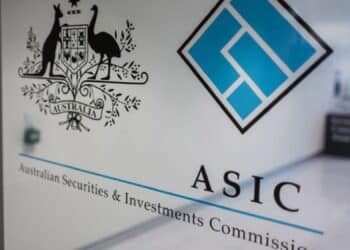Australian Securities and Investments Commission (ASIC) deputy chair, Peter Kell, has admitted to the Royal Commission that while the regulator has not paid enough attention to grandfathered commissions in the past, it is an issue “that we will consider” going forward.
In the last session of the Commission’s superannuation hearings, counsel assisting the Royal Commission, Michael Hodge QC, pushed Kell to address whether ASIC’s approach to grandfathered commissions had been adequate considering the harm they have been shown to cause consumers.
“The question the Royal Commission has raised around grandfathered commissions and whether it meets a best interests test, with the benefit of hindsight we should’ve considered that issue and we should’ve raised it with [Australian Prudential Regulation Authority] APRA as well, and it’s an issue I will say that we will consider it,” Kell testified.
“I heard the evidence over the last few days about that aspect of this matter, [qualifying that he is yet to form a final judgment here] and I didn’t find some of the reasons put forward about grandfathering and why it should continue to be particularly persuasive.
“I do think there is a bigger issue here. Putting aside the legal test [of customers’ best interests], the entire provision of grandfathering is not in consumers interests.”
Kell said that grandfathered commissions generate conflicts of interest and unnecessary costs and, while their enablement originally started as a seemingly limited and transitionary provision, it was clear that it was much broader.
“It would be highly desirable to have this dealt with at a policy level,” he said.
Hodge uncovered that NAB had approached the regulator regarding grandfathered commissions, stating what they planned to do seemingly to test the waters in terms of ASIC’s potential response. An internal email from ASIC said that responding to NAB’s communication could be “unhelpful”, and it seems that the regulator did not then go on to figure out what NAB was doing following this exchange.
ASIC contacted APRA regarding fees for no service in 2017 and, to Kell’s knowledge, did not bring up grandfathered commissions.
Kell also said under questioning by Hodge that compensation paid out currently for fees charged for no service was around $260 million and was estimated to reach $850 billion but could exceed $1 billion.
Kell further admitted that that the regulator had not yet looked at any profit the wrongdoers had gained from having the value of those fees for no service over the last decade.
“It’s a good question and I’m happy to say that ASIC would look at that, but up until this time it’s been a very, very resource intensive task to deal with the main game, which is to put the money back in the pockets of those clients who paid it,” Kell said.
Finally, when directly asked by Commissioner Kenneth Hayne QC, Kell said that ASIC had discussed whether to hand the fees for no service issue over the Commonwealth Department of Public Prosecutions for criminal proceedings.





